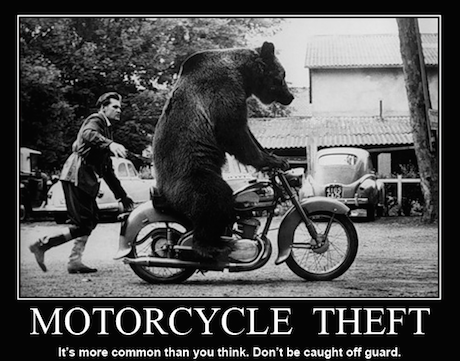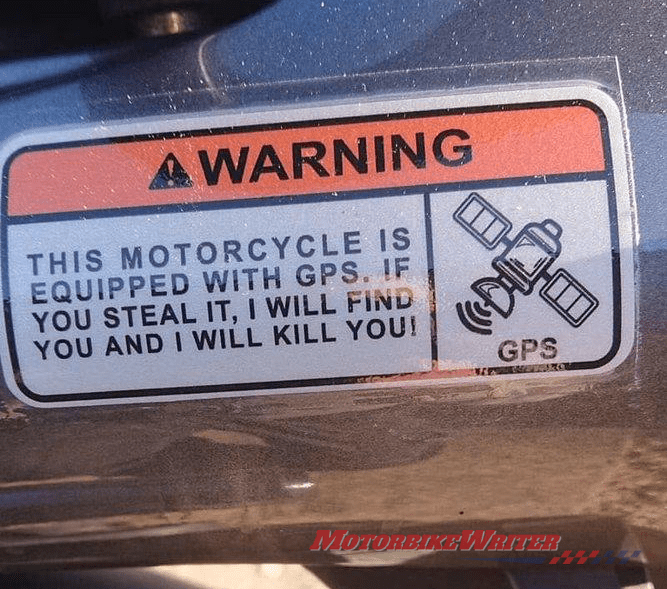Tougher jail penalties of 14 years for anyone involved in motor vehicle theft or rebirthing in NSW have resulted in lower thefts, a new review of the 2006 laws has found.
In February 2019, the National Motor Vehicle Theft Reduction Council engaged law firm Clayton Utz to perform the law review.
It found that the NSW laws introduced in 2006 have been “effective in reducing the incidence of organised vehicle theft and rebirthing”.
Since 2014, national motor vehicle thefts were up 6.3%. while NSW was down 11.1%.
However, it is not having any effect on motorcycle thefts!
In fact, over the same period, motorcycle thefts in Australia are up 7.8%, while NSW is actually up a whopping 32.6%.
Tougher penalties
Any rider whose pride and joy has been stolen would probably suggest tough penalties. In one previous article a reader suggested castration.
Law enforcement agencies agree that tougher penalties are needed. But maybe not castration!
The problem has been that organised criminal rings use specialist criminals for different functions of the same offence.
They include bike thieves, burglars who break into your house to steal car or bike keys, re-birthers, fencers and document forgers.
This has made it difficult to convict offenders and gang bosses or organisers. Charges were often not proven or bargained down to lesser charges, such as receiving stolen property.
At best, the conviction system was protracted with little or no joy for the victims.
In 2006, the NSW government amended the Crimes Act 1900 to introduce a new offence of knowingly facilitating a rebirthing activity carried out on an organised basis.
It applied to any and all members in the network involved in stealing your motorcycle or car with tougher penalties. The maximum penalty was 14 years in jail.
Law review
While it seemed like a good idea, the NMVRC figures seemed to show it was not working.
So they asked law firm DLA Phillips Fox to assess the changes in 2010. It found many matters were still before the court and not enough time had passed to draw conclusions on the law’s impact.
In February, Clayton Utz was engaged to perform a second review. Their report was expected by end of April 2019, but has only just now been released.
It found that while NSW vehicle thefts were down (but not motorcycles), it was difficult to isolate the impact of the law changes from other measures.
However, they concluded that the laws were “a useful tool to have available”.
The report says the laws are not only catching some offenders who knowingly participate in a vehicle rebirthing activity but who may not be guilty of any other offence.
Yet it also found that sentences did not reflect the seriousness of the crime, given the lack of offenders receiving the 14-year maximum penalty.
Although it did note that the Court of Criminal Appeal and District Court “conscientiously assess the gravity of the offending when applying the standard non-parole period of four years”.
The law firm also identified the difficulties of proving the offender’s knowledge of the motor vehicle theft network.
Despite this and the lack of maximum sentences, the review does not proposed any legislative changes.




